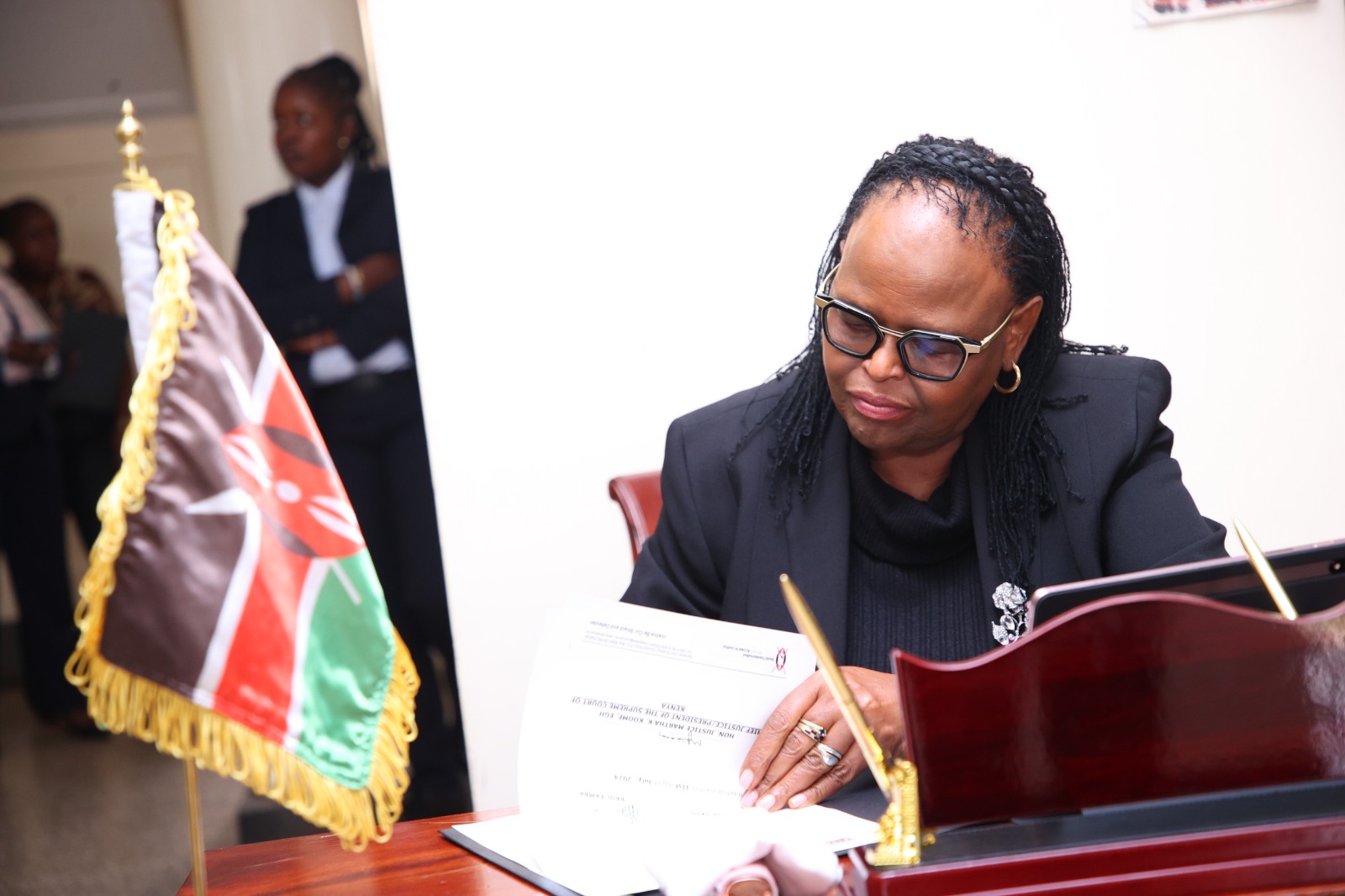CJ Koome given 21-day deadline to resolve complaints against judiciary

The complaints reported to the Commission on Administrative Justice cover a range of serious allegations, including unlawful conduct by judges, bribery, abuse of power, and delayed judgments.
The Commission on Administrative Justice (CAJ), also known as the Office of the Ombudsman, has issued a 21-day deadline to Chief Justice Martha Koome to publish a status report on over 700 complaints against judicial officers.
The CAJ, which has received numerous reports of maladministration within the Judiciary over the past five years, expressed concern over the high number of unresolved cases, with approximately 60 per cent still pending.
More To Read
- Men dominate Judiciary complaints and case filings as gender gaps persist despite digital progress
- CJ Koome warns new advocates against misappropriating clients’ compensation
- LSK demands probe into alleged judicial misconduct at Maua Law Courts, accuses magistrates of shielding officers
- Lawyer sues Chief Justice Koome over delayed rollout of Small Claims Courts
- JSC launches probe into bribery allegations against judge
- Four judges removed, 210 staff sacked for misconduct since promulgation of 2010 Constitution - CJ Koome
The complaints reported to the Commission cover a range of serious allegations, including unlawful conduct by judges, bribery, abuse of power, and delayed judgments.
CAJ Chairperson Charles Dulo addressed the issue on Tuesday, highlighting the urgency of resolving these matters.
“Over the past five years, we have forwarded more than 700 cases of maladministration within the Judiciary, but nearly 60 per cent of these remain unresolved,” Dulo said.
“This delay in resolution is a direct injustice to Kenyans seeking redress.”
The complaints, detailed in the CAJ’s “Status of Administrative Justice and Access to Information Report” (2012-2023), include issues of inefficiency, unlawful conduct, bribery, and judicial misconduct.
Some of the more concerning allegations include fraudulent access to judiciary funds, manipulation of court proceedings, bribery, and significant delays in judgment delivery.
One such case involves a magistrate accused of fraudulently accessing funds from the judiciary’s deposit account. The CAJ said the removal process for the accused magistrate, initiated in 2019, remains unresolved.
Another case concerns a magistrate allegedly abusing their power by manipulating court proceedings and using a litigant’s title deed as collateral without their consent. Despite the seriousness of these allegations, the Commission said investigations have not been concluded.
Unresolved complaints
Other unresolved complaints include accusations of alcohol-related misconduct, bribery, and significant delays in judgment delivery, with some judgments overdue by several years.
The Commission noted that one magistrate, accused of delaying 250 judgments, was acquitted, while another was dismissed for delaying 30 judgments. A third magistrate, who allegedly delayed over 100 judgments, has yet to see any resolution.
Additionally, a magistrate was accused of corruption in a traffic case where two Public Service Vehicle drivers were allegedly asked to pay a bribe of Sh20,000 each for their release. The complaint remains unaddressed, raising concerns about unlawful official conduct within the Judiciary.
The CAJ also noted a serious case involving a judge accused of issuing a questionable ruling in a commercial case. The judge upheld a lack of jurisdiction in the case but proceeded to award a counterclaim of Sh59 million in the same ruling, resulting in a loss of over Sh400 million to the State. The Commission said this complaint remains unaddressed, despite its significant implications.
The CAJ has also pointed out a case where a judge has been accused of issuing “air judgments” — verbal rulings without written documentation — leaving litigants and their advocates without access to critical legal documents. According to the Ombudsman, this complaint has been pending for over three years.
The Commission has now formally requested the Chief Justice to expedite the resolution of these complaints.
The CAJ has demanded the publication of a status report on all complaints lodged with the Judiciary, as required by the Constitution and the Access to Information Act. It noted that this report must be submitted to the CAJ within the next 21 days.
“Efficient, effective, and transparent handling of complaints against judicial officers is not only a legal requirement but also a constitutional imperative,” Dulo said.
“We expect the Chief Justice to act swiftly in addressing these unresolved matters.”
The Commission reiterated the importance of judicial accountability, urging the Judiciary to uphold the principles of integrity, transparency, and accountability enshrined in the Constitution.
“The Judiciary is the citadel of the rule of law and occupies a special place in Kenya's governance system. In this regard, while recognising the independence of the Judiciary, the Constitution enjoins the Judiciary to be accountable to the public. In particular, Article 10 requires the Judiciary, like any other State organ, to apply and promote the national values and principles of governance, including good governance, integrity, transparency and accountability,” Dulo said.
The Commission also called on the public to continue raising complaints about service failures in the public sector to ensure continued accountability.
Top Stories Today












































